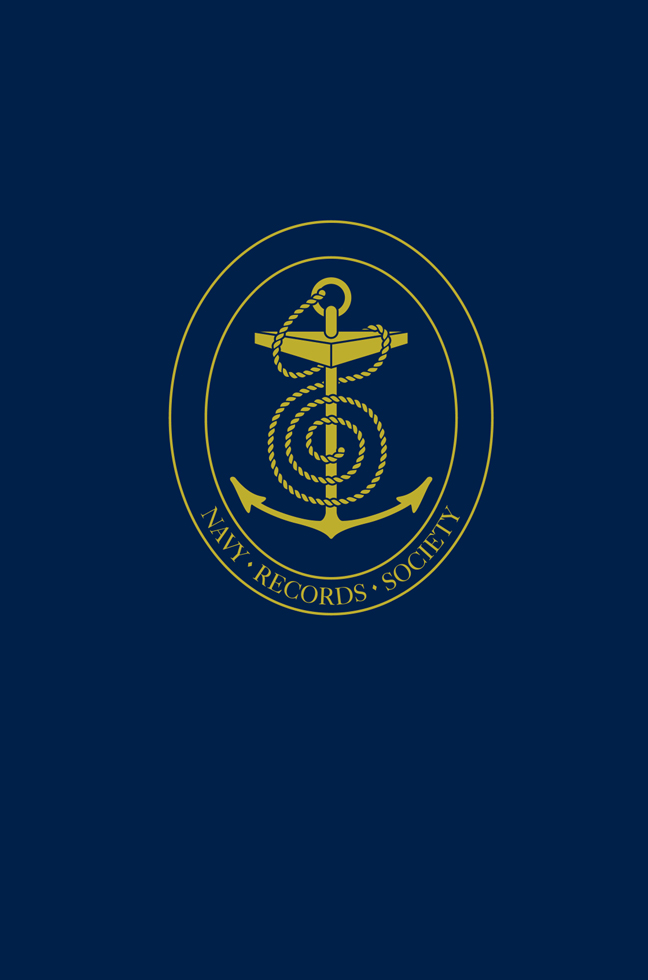Book contents
- Frontmatter
- Dedication
- Contents
- List of Plates
- Preface
- List of Abbreviations
- I The Provision of Ships for Edward I's Campaigns in Scotland, 1300–1306: Barges and Merchantmen
- II Lord Admiral Lisle and the Invasion of Scotland, 1544
- III The Journal of the Voyage of the Marigold to Iceland, 1654
- IV Neutrality, Sovereignty and Jurisdiction: Two Cases in the Admiralty Court, 1798–1805
- V The Supply of Timber for the Royal Navy, c.1803–c.1830
- VI The Journal of Lieutenant George Bedford, 1835–36: Surveying on the West Coast of Africa
- VII The Journal of Lieutenant Charles Knowles in the River Niger, 1864
- VIII The Diary of Signal Bosun Henry Eason: The Naval Brigade in the Zulu War, 1879
- IX The Autobiography of Chief Gunner Alexander Grant: HMS Lion at the Battle of Jutland, 1916
- X Australian Naval Defence: Selections from the Papers and Correspondence of Captain W. H. C. S. Thring, 1913–34
- XI The Relief of Admiral North from Gibraltar in 1940
- XII The Development of an Independent Navy for Australia: Correspondence between the First Naval Member and the First Sea Lord, 1947–59
- Contents of Previous Naval Miscellany Volumes
- Index
- Miscellaneous Endmatter
IV - Neutrality, Sovereignty and Jurisdiction: Two Cases in the Admiralty Court, 1798–1805
Published online by Cambridge University Press: 05 March 2024
- Frontmatter
- Dedication
- Contents
- List of Plates
- Preface
- List of Abbreviations
- I The Provision of Ships for Edward I's Campaigns in Scotland, 1300–1306: Barges and Merchantmen
- II Lord Admiral Lisle and the Invasion of Scotland, 1544
- III The Journal of the Voyage of the Marigold to Iceland, 1654
- IV Neutrality, Sovereignty and Jurisdiction: Two Cases in the Admiralty Court, 1798–1805
- V The Supply of Timber for the Royal Navy, c.1803–c.1830
- VI The Journal of Lieutenant George Bedford, 1835–36: Surveying on the West Coast of Africa
- VII The Journal of Lieutenant Charles Knowles in the River Niger, 1864
- VIII The Diary of Signal Bosun Henry Eason: The Naval Brigade in the Zulu War, 1879
- IX The Autobiography of Chief Gunner Alexander Grant: HMS Lion at the Battle of Jutland, 1916
- X Australian Naval Defence: Selections from the Papers and Correspondence of Captain W. H. C. S. Thring, 1913–34
- XI The Relief of Admiral North from Gibraltar in 1940
- XII The Development of an Independent Navy for Australia: Correspondence between the First Naval Member and the First Sea Lord, 1947–59
- Contents of Previous Naval Miscellany Volumes
- Index
- Miscellaneous Endmatter
Summary
Under Sir William Scott, arguably the greatest Judge of its long history, the High Court of Admiralty was during the French Revolutionary and Napoleonic Wars one of the most influential legal bodies in the land. It dealt not only with the technicalities of seizures in prize, but with the numerous related issues of nationality, neutrality, sovereignty and jurisdiction at a time when all those matters were frequently fluid and their application uncertain.
The law that the Court sought to administer was not the common law of England, but international law, or the law of nations as it was then (perhaps more accurately) called. The procedures of the Court, situated at Doctors’ Commons, were in contested cases adversarial rather than investigative, thus following British legal tradition, but most of the evidence was documentary and witnesses were seldom called in person. Scott himself was at pains to point out the principles on which he was working; early in his incumbency he said:
I consider myself as stationed here, not to deliver occasional and shifting opinions to serve present purposes of particular national interest, but to administer with indifference that justice which the law of nations holds out without distinction to independent states.
In consequence, Scott's judgments often had much to say on the law of nations as then understood, and many of the principles he enunciated have survived, in customary or codified form, to this day. That is not to say that he took no account of English interpretations of the law, where differences existed; on such matters as the Rule of the War of 1756 or the 1753 Opinion of the Law Officers on the Silesian Loan, he followed English practice rather than making concessions to continental contentions based upon the principle of ‘free ships free goods’.
Fortunately, all Scott's major judgments survive, as reported by three authorities: Christopher Robinson, Thomas Edwards and John Dodson. The reporters were clearly aided by Scott's habit of writing down his judgments in full. He was, by some accounts, not a fluent extempore speaker and this has been a benefit to history. While the judgments which follow are, technically, already published work, they are available only in specialised libraries and it is believed that they fall therefore within the criteria of the Navy Records Society.
They are, moreover, supplemented here by much previously unpublished material, nearly all from the National Archive.
- Type
- Chapter
- Information
- The Naval Miscellany , pp. 129 - 190Publisher: Boydell & BrewerFirst published in: 2024



